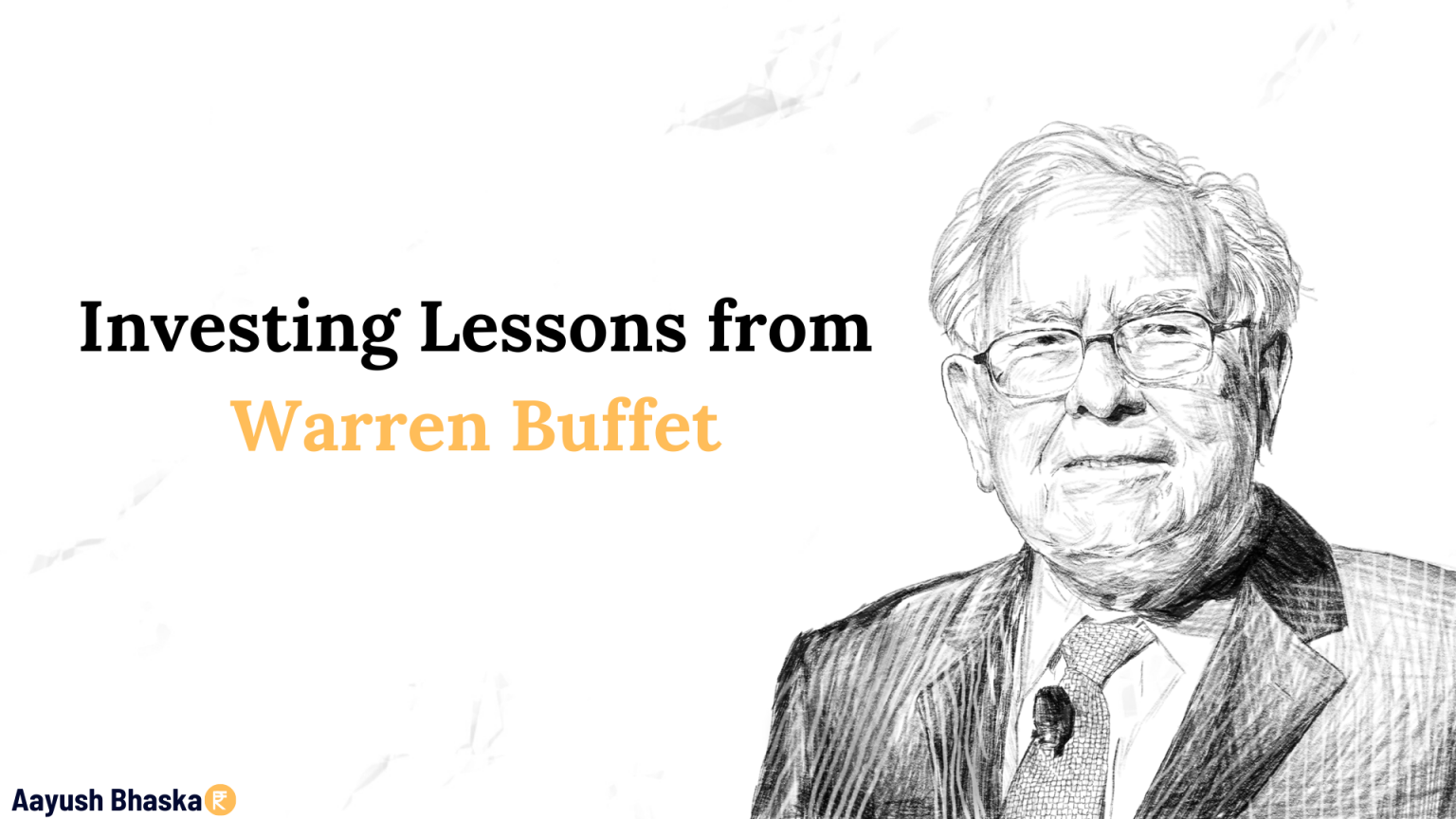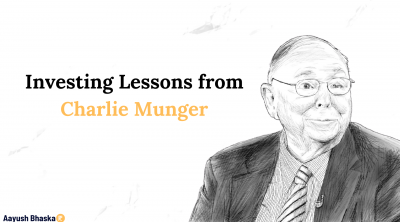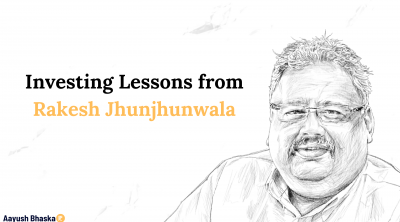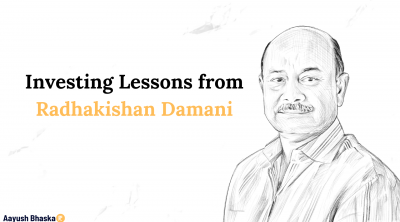Warren Buffett is the man who has most probably inspired the creation of more millionaires than anyone else in the past seventy years. Warren Buffett is a legendary investor who many turn to for investment advice.
The question I am asked most often about Warren Buffett is “What are his investment secrets?”
If you are looking to invest in shares or want to improve your current strategy, you should read this article for some inspiration from one of the greatest investors of all time.
The great Warren Buffett has many lessons for investors. Here are nine of his greatest.
1. As an investor, you should try to make sure that your capital is preserved.
Warren Buffett says that the preservation of capital should be an investor’s priority; this means that when you make a bad trade, get out. Don’t panic and hold your position.
“Rule No. 1: Never lose money. Rule No. 2: Never forget Rule No. 1”
The stock market swings up and down a lot at the whim of many factors. It’s important to stay focused on your homework, avoiding the temptation to follow the crowd.
If the business has immense growth potential, stay invested even in the worst markets to reap the best benefits possible when the markets turn around.
2. It’s better to buy a great business at a reasonable price than to buy an average business at a great price.
That’s the first lesson Warren Buffett recommends to people who want to learn about investing. It seems simple enough, but it’s very hard for investors to follow.
Investors make emotional decisions. They ask themselves “how much will I pay for this investment?”
But they should be asking “how much is this investment worth?”
You need to decide how much you are willing to pay for it, and then find out how much it is worth. If the price is lower than its value, go ahead and buy it. If not, don’t buy it.
“It’s far better to buy a wonderful company at a fair price than a fair company at a wonderful price”
There are two things you need to do: first, you need to spot undervalued companies; second, you need to determine whether they have good potential for growth.
3. It is probably a good time to buy if other people are desperate to sell and vice versa.
If you’re skeptical of this advice, you’re not alone.
You’ve probably heard it before, or at least some variation of it.
But if you think about the meaning behind this quote, and what it takes to act on it, things get more interesting.
What are greed and fear?
And how do we know when our fear is a good thing?
Warren Buffett is suggesting that your fear should come from your understanding of how people will react to something.
People can’t be scared by what they don’t understand.
So if you want to invest in something people are afraid of, first, you have to understand why they’re afraid of it.
If their fear isn’t rational, invest in it. If their fear is rational, don’t invest in it.
“Be fearful when others are greedy and greedy when others are fearful”
To be a contrarian investor like Buffett, you have to be willing to go against conventional wisdom. That’s hard for most people because we are wired to follow the crowd.
4. The Stock Market is a device for transferring money from the impatient to the patient.
Warren Buffett says you have to be prepared to hold a stock for the long haul.
And if you don’t feel comfortable with that, you shouldn’t own it at all.
The benefit of long-term investing is the ability to take advantage of compounding.
When you hold an investment over a long time, you can earn money on your initial investment as well as on the reinvestment of dividends and capital gains distributions.
Over time, these additional funds work like a snowball rolling downhill, gathering size and speed until they become an avalanche of wealth.
“No matter how great the talent or efforts, some things just take time. You can’t produce a baby in one month by getting nine women pregnant”
You cannot catch the top and bottom of a market consistently, so don’t try.
Invest when you are convinced about a company’s value. If you buy good stocks at fair prices, you will be rewarded over time.
5. Invest only if you can explain your decision clearly and convincingly.
When you invest in a company, you are buying a piece of a concrete business, with its unique strengths and weaknesses.
Warren Buffett says you should understand the business before investing. If you cannot do that, then it’s too complicated for you.
You will not understand the investment rationale and won’t know what pitfalls to look for. It will be just dumb luck if you make money on your investment, and dumb luck soon runs out.
“Risk comes from not knowing what you are doing”
For example, Buffett has never invested in technology companies because he doesn’t understand them.
He may have read a lot about technology companies, but he has never understood the underlying business economics of those companies well enough to invest in them.
He missed out on investments in Amazon, Google, Facebook, and many others, but he probably also avoided some losers.
6. Don’t let your emotions get involved.
Buffett ruminates on the psychological nerve of most investment failures.
Warren Buffett’s advice to investors is simple: buy quality companies and hold on to them.
If you can stay disciplined and not panic when the market goes down, you’ll be wealthy in no time.
“The most important quality for an investor is temperament, not intellect”
Buffett says temperament is the most important quality of an investor and not intellect.
You need to keep raw irrational emotion under control. You need to be patient and disciplined and be able to accept setbacks without getting hurt.
You need an ability to not let mistakes torment you.
You need an ability to behave in a way that is very different from how most people behave. You don’t have to be smart to make money in stocks.
But you have to behave differently than the average person.
7. The secret to investing is to understand the value of something.
The concept of value investing was popularized by Benjamin Graham and his student Warren Buffett.
Value investing deals with two primary concepts – undervaluation and overvaluation:
Stock is undervalued if it’s trading at a price lower than its intrinsic value.
On the other hand, when a stock is trading at a price higher than its intrinsic value, it’s overvalued.
Warren Buffett prefers value investing because he believes that it gives him a margin of safety in his investments.
This means that even if the stock goes down, he still has room to make money because he bought it cheaply.
“Price is what you pay. Value is what you get”
At the heart of value investing is the belief that price and value are not the same things.
Warren Buffett suggests buying stocks at a significant discount and looking for companies with strong fundamentals (sales, earnings, and cash flow) but out-of-favour or neglected share prices.
He believes that it’s possible to find these deeply discounted stock prices on the market.
There are several reasons why a company’s stock price will fall below its intrinsic value – and when one of these factors comes into play, you should seek an opportunity to buy the stock at a bargain price.
8. Prepare for the future, don’t predict it.
The vast majority of investors are trying to buy stocks that will go up, Warren Buffett once said.
They don’t consider whether the prices are justified by underlying business fundamentals.
The problem is that even if you could accurately predict what other people were thinking, it wouldn’t help you much because by definition half the population thinks the opposite way—and there’s no way to tell which half is correct.
“Predicting rains doesn’t count, building arks does”
Warren Buffett says you don’t have to worry about the day-to-day fluctuations of the market.
You don’t have to worry about what the economy is going to do next year or the year after that.
You put together a portfolio of companies that you think can increase in value at a rate greater than the market, and so long as they keep doing that you’re going to do fine.
9. Begin earlier to leave more time for compounding.
Compounding is the most powerful force in the universe. The great thing about compounding is that it takes something from nothing, a bit like magic.
Buffett is famous for saying that his favorite holding period is forever.
His wealth has grown even more, with him making more money in the last 10 years than he did in his 50 previous years.
“I made my first investment at age eleven. I was wasting my life until then”
Compounding works best when you invest early and often and for long periods.
This means you should consider investing as soon as you have some extra money lying around.
Don’t wait for tomorrow or next year or until you have reached your other goals because time will do half of the work for you when it comes to compounding.
To Conclude
Warren Buffett has changed the way people look at investing.
His lessons apply not just to investment, but to nearly every aspect of life.
He’s spent his life endeavoring to understand how to make sound investments, and his advice can help us make smart decisions in all facets of our lives.
For novice or veterans alike, Buffett’s strategies are likely to provide insight into the financial world.
The Oracle of Omaha’s lessons is there for the taking, if only we’ll listen and learn.








Leave a Reply